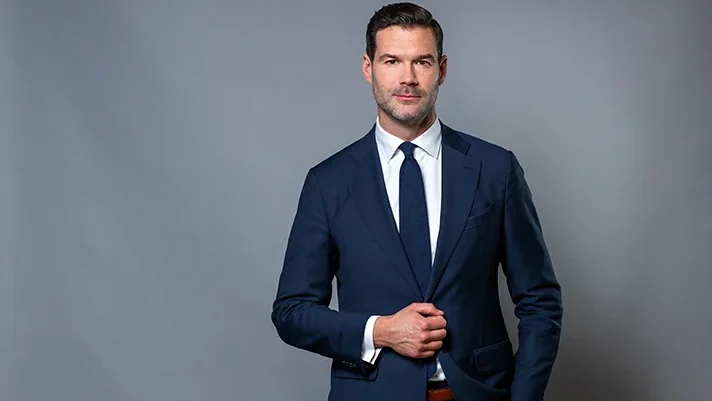
Swedish Migration Minister Johan Forssell
Photo: Kristian Pohl/Regeringskansliet
When Swedish PM Ulf Kristersson presented his re-formed government on Tuesday, in the wake of the surprise resignation of Foreign Minister Tobias Billström last week, a renewed focus on dealing with migration seemed apparent.
Maria Malmer Stenergard, the former migration minister, will replace Billström as head of the foreign ministry. She will be replaced as migration minister by Johan Forssell, the former minister of aid and foreign trade. Both belong to Kristersson’s Moderates party.
In an interview after the appointment, the new migration minister said keeping asylum migration to a minimum for a long time will be a priority. Forssell told Aftonbladet, “The important thing now is that we don’t return to the previous policy, which put Sweden in a very difficult situation. A lot of people were affected by it.”
While remigration has not been a focus of government policy so far, that is changing, Forssell said. “We will return to that issue,” he said, quoting Denmark’s plan, which pays immigrants to return to their country of origin, as one solution to consider. “[I]t’s clear that it’s an important issue for Sweden and for this government.”
A recently published report by economist Joachim Ruist, commissioned by the Swedish government to find ways to convince immigrants to remigrate, concluded that “no such methods can be found.” The report said increasing the ‘repatriation allowance’ to the Danish level of 350,000 SEK (€30,600) per person would result in no more than 700 people remigrating annually. Ruist previously presented an analysis that put the cost for the country at 74,000 SEK (about €6,400) per migrant per year.
Forssell would not elaborate on a government proposal currently in the works but said he sees several advantages to supporting remigration. “People who have come to Sweden may not feel that life turned out as they had imagined, that they long to return to their home country but lack the finances or other means to do so. We don’t think it’s strange to be able to facilitate such a development,” he said.
Opposition parties in Sweden have criticized the idea of paying immigrants to return to their home countries, saying it would run contrary to the idea of integration and would make immigrants feel unwanted.
While Swedish pundits raised concerns about new FM Malmer Stenergard’s lack of experience in the foreign policy field, PM Kristersson pointed to her international negotiations as migration minister as evidence to the contrary. “She was instrumental in getting the migration pact in place and has a large international network,” Kristersson told Expressen.
No major policy changes are expected with the new foreign minister. Sweden will continue supporting Ukraine, working on NATO integration and cooperation with neighboring countries, and support a ceasefire and two-state solution in Israel, Malmer Stenergard said.
Sweden Democrat leader Jimmie Åkesson was pleased with the two appointments. “We have been satisfied with [Forssell] in the role of minister of aid and foreign trade. Now we can bring in a person who is loyal to the Tidö Agreement in this position and a foreign minister with a strong profile on migration issues. This can benefit us in the long term,” he told Expressen.
The Tidö Agreement is the negotiated policy agreement between the government parties and the Sweden Democrats that broke the previous cordon sanitaire against the migration-critical party and allowed it formal influence over government policy without being part of the government.
